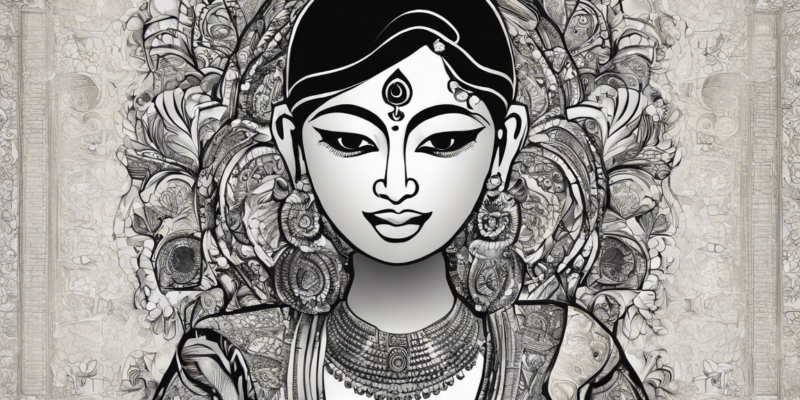The festival of Shubho Bijoya holds immense cultural and religious significance in India, especially in the states of West Bengal, Assam, and Odisha. Also known as Vijayadashami or Dussehra, Shubho Bijoya marks the triumph of good over evil and is celebrated with great fervor and enthusiasm by people of all ages. This auspicious occasion usually falls in the month of October, marking the end of the nine-day long festival of Navratri.
Significance and Rituals
Shubho Bijoya symbolizes the victory of the warrior goddess Durga over the demon Mahishasura. It is believed that on this day, Goddess Durga defeated and killed Mahishasura, thus restoring peace and righteousness in the world. The festival not only celebrates the divine feminine energy but also signifies the victory of light over darkness, knowledge over ignorance, and truth over falsehood.
The rituals associated with Shubho Bijoya are as follows:
-
Sindoor Khela: On the day of Vijayadashami, women gather to play with sindoor (vermilion) and offer it to the Goddess as a symbol of married life and prosperity.
-
Immersion of Idols: The beautifully crafted idols of Goddess Durga, along with her divine companions, are immersed in water bodies amidst chanting, drum beats, and festive cheer.
-
Exchanging Good Wishes: People exchange sweets, gifts, and good wishes with each other, spreading joy and happiness all around.
-
Feasting: Special delicacies are prepared and shared with loved ones, making the festival a gastronomical delight.
Celebrations across India
The spirit of Shubho Bijoya is pervasive in various parts of India, albeit with regional variations. In West Bengal, the festival is celebrated with grand processions, elaborate pandal decorations, and traditional dance performances like Dhunuchi Naach. In Assam, it is known as Bijoya Dashami and marks the end of the Durga Puja festivities. In Odisha, the occasion is celebrated as Vijaya Dashami with cultural programs and traditional rituals.
FAQs:
-
What is the significance of Shubho Bijoya in Hindu mythology?
Shubho Bijoya commemorates the victory of Goddess Durga over the demon Mahishasura, symbolizing the triumph of good over evil. -
How long does the festival of Shubho Bijoya last?
Shubho Bijoya is celebrated on the tenth day of Navratri, which spans nine days, culminating in Vijayadashami. -
What are some traditional dishes prepared during Shubho Bijoya?
Popular dishes include luchi, alur dom, sandesh, and bhoger khichuri. -
Why is sindoor khela an important ritual during Shubho Bijoya?
Sindoor Khela is a ritual where married women play with vermilion and offer it to the Goddess, symbolizing marital bliss and prosperity. -
How is the immersion of Durga idols done during Shubho Bijoya?
The idols of Goddess Durga are immersed in water bodies like rivers or lakes amidst chanting and festivity, marking the end of the festival. -
Is Shubho Bijoya celebrated differently in different states of India?
Yes, the festival is celebrated with regional variations in states like West Bengal, Assam, and Odisha, each adding its unique cultural touch to the celebrations. -
What is the cultural significance of Dhunuchi Naach in Shubho Bijoya celebrations?
Dhunuchi Naach is a traditional dance form where dancers balance incense burners while performing to rhythmic beats, adding to the festive fervor. -
How do people exchange good wishes during Shubho Bijoya?
People exchange sweets, gifts, and heartfelt wishes with each other, spreading joy and positivity during the celebrations. -
What is the spiritual significance of the festival of Shubho Bijoya for devotees?
Shubho Bijoya is a time for devotees to seek blessings, offer gratitude, and reaffirm their faith in the victory of righteousness, symbolized by Goddess Durga. -
How does the festival of Shubho Bijoya reinforce the values of unity and harmony in society?
By bringing people together in celebration, exchanging good wishes, and sharing festive joys, Shubho Bijoya fosters a sense of unity, harmony, and togetherness among communities.
In conclusion, Shubho Bijoya is a vibrant and joyous festival that not only celebrates the victory of good over evil but also reinforces the values of unity, harmony, and positivity in society. Through its rituals, traditions, and cultural expressions, Shubho Bijoya brings people together in a spirit of love and celebration, spreading happiness and good fortune to all.

